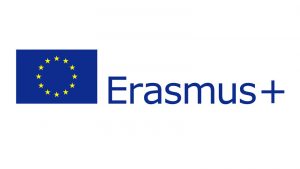
What is Erasmus+?
Erasmus+ is the EU’s programme to support education, training, youth and sport in Europe.
It has an estimated budget of €26.2 billion. This is nearly double the funding compared to its predecessor programme (2014-2020).
The 2021-2027 programme places a strong focus on social inclusion, the green and digital transitions, and promoting young people’s participation in democratic life.
It supports priorities and activities set out in the European Education Area, Digital Education Action Plan and the European Skills Agenda. The programme also
- supports the European Pillar of Social Rights
- implements the EU Youth Strategy 2019-2027
- develops the European dimension in sport
Opportunities
Erasmus+ offers mobility and cooperation opportunities in
- higher education
- vocational education and training
- school education (including early childhood education and care)
- adult education
- youth
- sport
Detailed information on these opportunities, including eligibility criteria, is available in the [Erasmus+ Programme Guide](https://erasmus-plus.ec.europa.eu/programme-guide/erasmus-programme-guide?)
Priorities of the Programme
- Inclusion and Diversity: disabilities; health problems; barriers linked to education andtraining systems and to discrimination; cultural differences; social, economic barriers,geographical barriers.
- Digital Transformation.
- Environment and fight against climate change.
- Participation in democratic life,common values and civic engagement.
Reporting
The outcomes of Erasmus+ are available in reports and
compendia of statistics, as well as through the Erasmus+ Projects Platform. This includes
most of the initiatives funded by the programme and a selection of good practices and success stories.
International Credit Mobility
International Credit Mobility under Key Action 1 provides opportunities for students, teachers, and staff of higher education institutions to participate in short-term academic exchanges, such as study periods, teaching assignments, or training and professional development activities.
Joint Master’s Programs
Joint Master’s Programs, also under Key Action 1, enable higher education institutions to develop and offer joint master’s degree programs in collaboration with partner institutions from other countries. These programs provide students with the opportunity to study in multiple countries and obtain a joint or multiple degrees.
Capacity Building in Higher Education
Key Action 2, Capacity Building in Higher Education, focuses on supporting projects aimed at modernizing and improving the quality of higher education, promoting cooperation between institutions, and sharing best practices in the field of higher education.
Jean Monnet Program
The Jean Monnet Program is aimed at promoting European studies and enhancing knowledge of the European Union, its history, values, and integration processes. This program supports research, teaching, and debate on European integration, involving higher education institutions, researchers, and students from around the world.